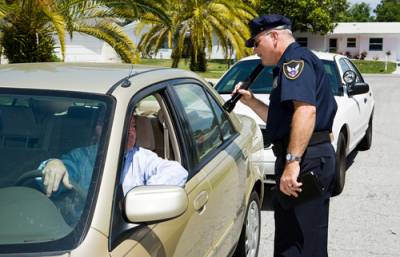Recent Blog Posts
What to Do If Someone Gets an Order of Protection Against You
 In Illinois, orders of protection are issued to individuals who feel that their safety is threatened by another person. Protective orders, called restraining orders in other states, are commonly issued in domestic violence cases. The purpose of a protective order is to prevent an abusive or harassing individual from causing the alleged victim further harm. If someone was issued a protective order against you, you may be unsure of how to handle the situation. It can be frustrating and overwhelming. The actions you do and do not take during the protection period can dramatically impact your future, so it is essential to tread cautiously.
In Illinois, orders of protection are issued to individuals who feel that their safety is threatened by another person. Protective orders, called restraining orders in other states, are commonly issued in domestic violence cases. The purpose of a protective order is to prevent an abusive or harassing individual from causing the alleged victim further harm. If someone was issued a protective order against you, you may be unsure of how to handle the situation. It can be frustrating and overwhelming. The actions you do and do not take during the protection period can dramatically impact your future, so it is essential to tread cautiously.
Follow the Instructions in the Protective Order - Even if The Order is Based on False Allegations
Illinois courts may grant an Emergency Order of Protection on a per se basis. This means that if the court believes that domestic violence has occurred, the court may issue a protective order without giving the accused an opportunity to defend themselves in court. If you have been served with an emergency order of protection, it is essential to follow its every instruction until you have had a chance to appear in front of a judge.
Frequently Asked Questions About Driver's License Reinstatement in Illinois
 A conviction for driving under the influence (DUI), leaving the scene of a serious accident, drag racing, or a felony offense involving a motor vehicle can lead to a driver's license revocation. Once a person's license is revoked, he or she is prohibited from driving. The only way to get a driver's license back after it is revoked is through a Secretary of State license reinstatement hearing.
A conviction for driving under the influence (DUI), leaving the scene of a serious accident, drag racing, or a felony offense involving a motor vehicle can lead to a driver's license revocation. Once a person's license is revoked, he or she is prohibited from driving. The only way to get a driver's license back after it is revoked is through a Secretary of State license reinstatement hearing.
If you lost your license, you may have many questions about how to get it back. Read on to learn more about driver's license reinstatement in Illinois.
Can I Regain Driving Privileges After a Revocation?
When a driver's license is suspended, the driver can wait until the suspension period is over, pay a fee, and reinstate his or her license. Driver's license revocation, on the other hand, is indefinite. It is possible to reinstate a revoked license, but you must go through a hearing process with the Secretary of State. The hearing is an opportunity for you to show that you have taken steps to address whatever led to the revocation in the first place. For example, if your license was revoked due to a DUI, you may need to show evidence that you have undergone treatment for alcohol abuse and that you are no longer a danger to yourself or others on the road.
When Can Speeding Lead to Criminal Charges in Illinois?
 In the state of Illinois, speeding tickets are not uncommon. Most people have been pulled over for driving above the speed limit at least once in their lives. In most cases, a speeding driver receives either a warning or a traffic ticket payable by a moderate fine. He or she may also have to contend with higher insurance rates. If the driver has received multiple citations in the past, his or her driver's license may be suspended.
In the state of Illinois, speeding tickets are not uncommon. Most people have been pulled over for driving above the speed limit at least once in their lives. In most cases, a speeding driver receives either a warning or a traffic ticket payable by a moderate fine. He or she may also have to contend with higher insurance rates. If the driver has received multiple citations in the past, his or her driver's license may be suspended.
Excessive speeding can lead to much more than higher insurance rates and expensive traffic tickets. In certain circumstances, speeding or dangerous driving can lead to criminal charges.
Criminal Charges for Driving Above the Speed Limit
In Illinois, there are two ways that speeding can lead to criminal charges. Aggravated speeding occurs when someone drives 26 miles per hour or more over the posted speed limit. For example, if you are caught driving 76 miles per hour in a 55-mile-per-hour zone, you could be charged with aggravated speeding.
How Does a Breath Alcohol Interlock Ignition Device (BAIID) Work?
 Illinois law prohibits the operation of a motor vehicle while intoxicated by alcohol or drugs. Driving under the influence (DUI) penalties vary significantly depending on the circumstances of the alleged offense. A first-time DUI without aggravating circumstances is a Class A misdemeanor. If convicted, the offender may be sentenced to probation or community service instead of jail time. However, the penalties for DUI increase if there are aggravating circumstances like a child passenger, BAC over 0.16, or an accident resulting in serious injury or death. DUI penalties also increase with second and subsequent offenses. All DUI offenders face driver’s license revocation if they are convicted. In many DUI cases, a Breath Alcohol Ignition Interlock Device (BAIID) is required for DUI offenders to regain full or partial driving privileges.
Illinois law prohibits the operation of a motor vehicle while intoxicated by alcohol or drugs. Driving under the influence (DUI) penalties vary significantly depending on the circumstances of the alleged offense. A first-time DUI without aggravating circumstances is a Class A misdemeanor. If convicted, the offender may be sentenced to probation or community service instead of jail time. However, the penalties for DUI increase if there are aggravating circumstances like a child passenger, BAC over 0.16, or an accident resulting in serious injury or death. DUI penalties also increase with second and subsequent offenses. All DUI offenders face driver’s license revocation if they are convicted. In many DUI cases, a Breath Alcohol Ignition Interlock Device (BAIID) is required for DUI offenders to regain full or partial driving privileges.
Breath Alcohol Testing
Breath alcohol tests are tests that measure a person’s intoxication level. The person blows into the device, and it shows his or her blood alcohol content. A BAIID works similarly to the breath tests police use during DUI stops. Once the BAIID is installed in a person’s vehicle, he or she must blow into the device and prove that he or she is not intoxicated to start the vehicle.
How Can I Prevent Other People From Seeing My Criminal Conviction?
 Being convicted of a crime can result in jail time and other serious criminal penalties. However, for many people, the consequences do not end when they get out of jail. Individuals who have been convicted of a criminal offense often find it nearly impossible to have a normal life. Because the record of the conviction is available to the public, other people can easily find out about the conviction, which can be humiliating. Employers and landlords who perform background checks or even simple internet searches may find the conviction record, making it extremely difficult for the offender to find adequate housing and employment. Having a conviction on your record can also affect your ability to get a professional license or go to college.
Being convicted of a crime can result in jail time and other serious criminal penalties. However, for many people, the consequences do not end when they get out of jail. Individuals who have been convicted of a criminal offense often find it nearly impossible to have a normal life. Because the record of the conviction is available to the public, other people can easily find out about the conviction, which can be humiliating. Employers and landlords who perform background checks or even simple internet searches may find the conviction record, making it extremely difficult for the offender to find adequate housing and employment. Having a conviction on your record can also affect your ability to get a professional license or go to college.
If you were previously convicted of a criminal offense, record sealing may help you move on to a better future. For many, having a criminal record sealed is the first step toward building a new life.
Sleeping Pills Can Lead to DUI Charges, Even for Lawful Users
 Millions of Americans struggle with insomnia and other sleep problems. Prescription medications such as Ambien may offer a solution, but prescription medication users must know the risks associated with these powerful sleep aids.
Millions of Americans struggle with insomnia and other sleep problems. Prescription medications such as Ambien may offer a solution, but prescription medication users must know the risks associated with these powerful sleep aids.
Driving under the influence (DUI) charges are usually associated with drunk driving. However, Illinois law clearly states that any intoxicating compound can lead to DUI charges. Even prescription medication for which the driver has a prescription can lead to DUI charges and associated penalties.
Illinois DUI Laws
Most people assume that your blood alcohol concentration (BAC) has to be over the legal limit for you to be in danger of drunk driving charges. However, in Illinois, it is possible to be arrested for DUI even if your BAC is under 0.08 percent. The law states that a driver may be considered under the influence if they drive while impaired by medication or an intoxicating substance. You can face DUI charges if police officers believe that you are too impaired to drive safely, even if you have not taken any illegal substances.
Understanding Your Rights Regarding Vehicle Searches in Illinois
 The United States Constitution protects some of our most sacred rights. Among these rights is the right to a reasonable degree of privacy. Government authorities such as police officers cannot enter your property or seize your assets without unless certain criteria are satisfied.
The United States Constitution protects some of our most sacred rights. Among these rights is the right to a reasonable degree of privacy. Government authorities such as police officers cannot enter your property or seize your assets without unless certain criteria are satisfied.
For houses, apartments, or other dwellings, police usually need a search warrant from a judge before conducting a search. However, motor vehicles are exempt from the search warrant requirement. It is important for everyone to know their rights regarding vehicle searches. When a police search is performed illegally, the evidence collected during the search may be inadmissible in court.
When Police Officers May Search Your Car
Police can search a vehicle for drugs, weapons, or illicit items under a few different circumstances. However, if police conduct a search without appropriate justification, anything they uncover during the search may be dismissed under the exclusionary rule.
Local Municipalities, Counties Among Top for Illinois DUI Arrests
 The Alliance Against Intoxicated Motorists (AAIM) has released a series of lists including the number of driving under the influence (DUI) arrests and the arrest rates of Illinois law enforcement agencies for 2021. While the City of Chicago and Illinois State Police are categorized separately given their higher total numbers. A number of local counties and municipalities are near the top of the lists. If you have been arrested for DUI, an experienced attorney can help craft a strong defense.
The Alliance Against Intoxicated Motorists (AAIM) has released a series of lists including the number of driving under the influence (DUI) arrests and the arrest rates of Illinois law enforcement agencies for 2021. While the City of Chicago and Illinois State Police are categorized separately given their higher total numbers. A number of local counties and municipalities are near the top of the lists. If you have been arrested for DUI, an experienced attorney can help craft a strong defense.
2021 DUI Arrest Statistics for Illinois
On the 2021 total DUI arrest list, Lake and McHenry County deputies rank second and third respectively, while Will County is eighth. Just outside the top ten, Kane County had the 11th most arrests. Area municipalities including Aurora, Lombard, Elgin, Franklin Park, Carol Stream, Elmhurst, Naperville, and Cicero are all in the top ten for local police departments. The lists for counties and municipalities who arrested the most drunk drivers per sworn officer featured many of the same locales.
New Illinois Law Targets Smash and Grab Robberies
 Amid rising numbers of organized robberies of large retail establishments by organized groups, the state of Illinois has passed a new law, known as the INFORM Act, which will increase penalties for organized retail theft. Governor J.B. Pritzker signed the bill in May, and it will go into effect on January 1, 2023. While the most high-profile cases of these types of robberies have occurred on Michigan Avenue in Chicago, other retail establishments can be vulnerable targets. It reverses the recent trend of lowering the charges for shoplifting and other retail theft in recent years. Shoplifting and retail theft charges can carry serious penalties and you should work with an experienced retail theft defense lawyer if you have been accused of these crimes.
Amid rising numbers of organized robberies of large retail establishments by organized groups, the state of Illinois has passed a new law, known as the INFORM Act, which will increase penalties for organized retail theft. Governor J.B. Pritzker signed the bill in May, and it will go into effect on January 1, 2023. While the most high-profile cases of these types of robberies have occurred on Michigan Avenue in Chicago, other retail establishments can be vulnerable targets. It reverses the recent trend of lowering the charges for shoplifting and other retail theft in recent years. Shoplifting and retail theft charges can carry serious penalties and you should work with an experienced retail theft defense lawyer if you have been accused of these crimes.
Increased Penalties for Organized Theft
Under the new law, an individual who participates in an organized retail theft that steals more than $300 in merchandise can be charged with a Class 3 felony. If the offender engages in thefts from multiple commercial establishments, they could be facing Class 2 felony charges.
Getting Your License Back After a Suspension or Revocation in Illinois
 Without a valid driver’s license, your ability to work, run errands, and take care of your family could be jeopardized. A suspension or revocation of your license may result from a DUI or serious traffic violation. No matter what reason you lost your license, an experienced driver’s license reinstatement attorney can help you get reinstated and get your life moving again.
Without a valid driver’s license, your ability to work, run errands, and take care of your family could be jeopardized. A suspension or revocation of your license may result from a DUI or serious traffic violation. No matter what reason you lost your license, an experienced driver’s license reinstatement attorney can help you get reinstated and get your life moving again.
Formal and Informal Hearings to Reinstate Your License
There is a process that must be followed before your license can be reinstated. If you drive on a suspended or revoked license, you could be charged with a Class A misdemeanor and risk stiff fines and even jail time.
If your license was suspended or revoked for minor traffic violations, a first-time DUI, or an offense that did not involve a fatality, the first step is an informal hearing in front of a hearing officer with the Illinois Secretary of State’s office. These hearings are available at select Driver Services facilities and are held on a walk-in basis, with no appointment necessary.







